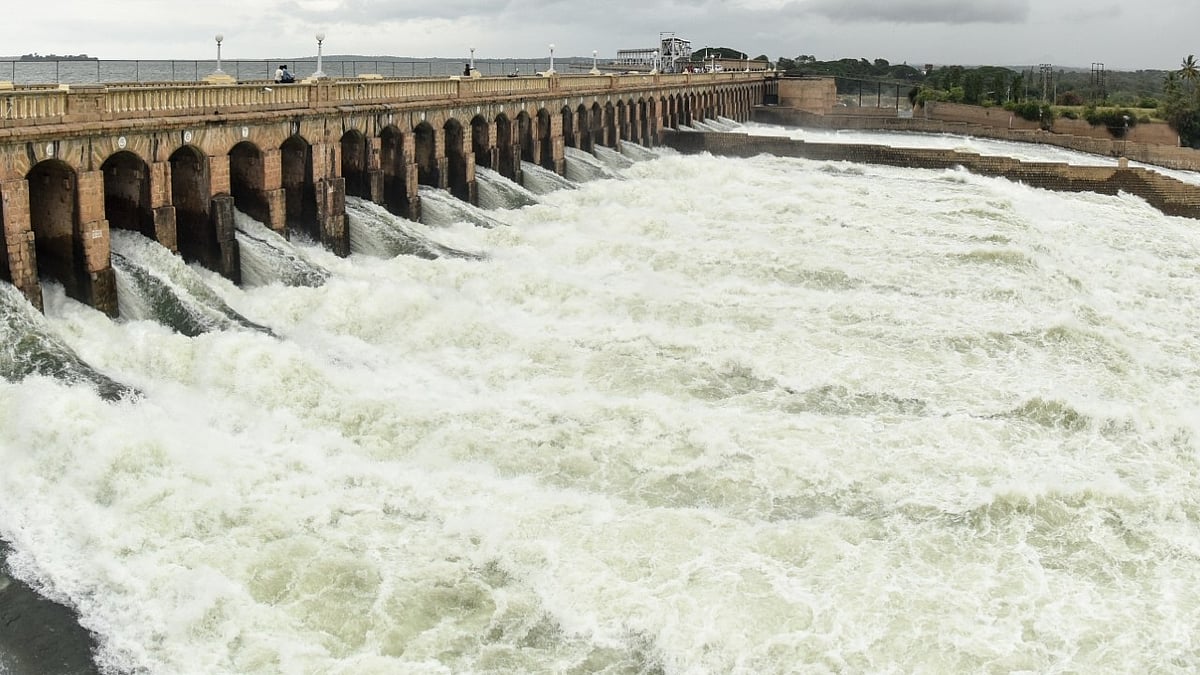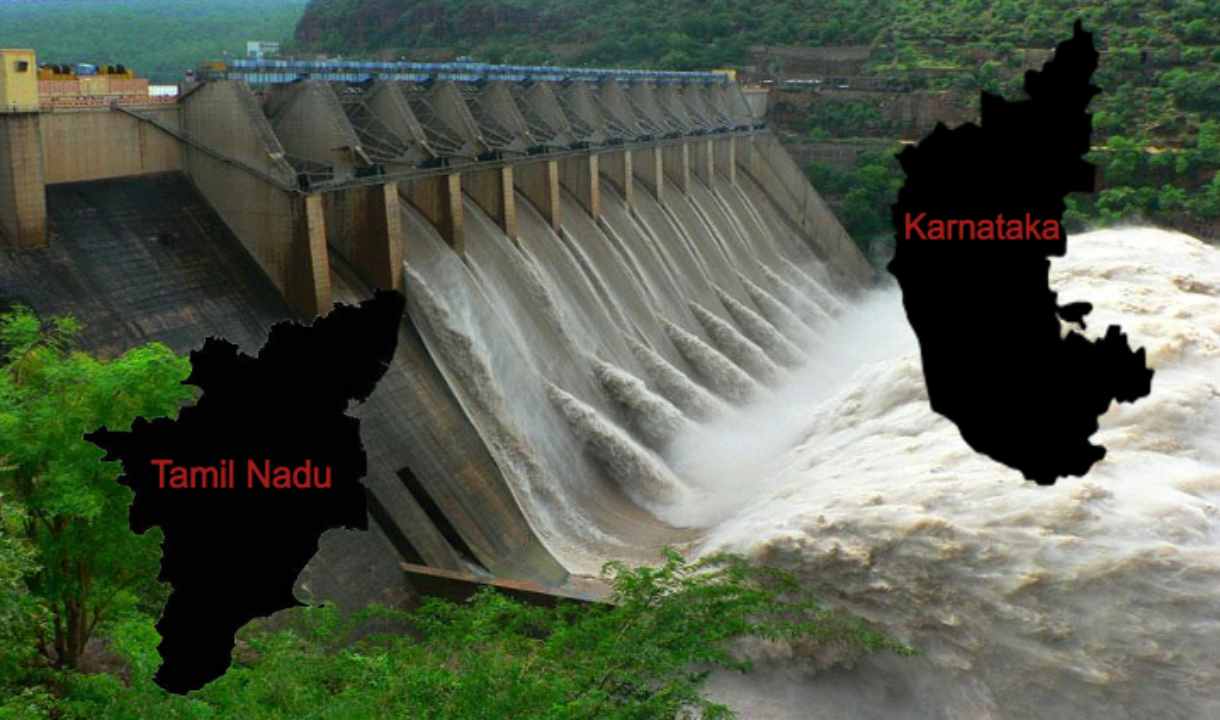40,000+ Shops Closed in Thanjavur, Tamil Nadu: Delta Districts Echo Protests Against Karnataka in the Cauvery Water Dispute!
Protests against Karnataka in the Cauvery Water Dispute lead to more than 40,000 shops being closed in Thanjavur, Tamil Nadu.

40,000+ Shops Closed in Thanjavur, Tamil Nadu: Delta Districts Echo Protests Against Karnataka in the Cauvery Water Dispute!
In a powerful demonstration of solidarity, numerous districts in the Cauvery Delta region of Tamil Nadu observed a complete and total shutdown on Wednesday as part of a bandh organized by the Cauvery Delta Protection Movement. The protest, which began at 6 in the morning and continued in the evening until 6 pm, aims to condemn Karnataka’s alleged defiance of the Supreme Court’s directive to release Cauvery water, which is considered a necessity for the agricultural activities which are being conducted in the region.
The bandh has brought life to a standstill in the areas of Thanjavur, Tiruchirapalli, Nagapattinam, Tiruvarur, Pudukkottai, Ariyalur, Cuddalore, as well as Mayiladuthurai. The protest has been supported by major political parties such as the ruling Dravida Munnetra Kazhagam (DMK), Congress, Marumalarchi Dravida Munnetra Kazhagam (MDMK), as well as Left parties. Farmers’ organisations, trade unions, and the State Lorry Owners Federation are also voicing their support, which has led to amplication of the impact of the bandh. As a result of the protest, shops and hotels remained closed, as did markets offering vital items.
Many trucks remained motionless with the help of the State Lorry Owners Federation, causing interruptions in transportation and commercial activity. Despite the shutdown, public transportation, which includes state buses and private vans, continued to operate to ensure that the public was inconvenienced as little as possible.

Tamil Nadu Vanigar Sangangalin Peramaippu (traders’ federation) president AM Vikrama Raja expressed support for the bandh and emphasized the potential effects of insufficient water supplies on the farmers in the Delta area. On this day, 1,25,000 stores had been shut down throughout Tamil Nadu. They were still holding this bandh to show their support for the farmers despite the fact that many crores of businesses are impacted, the state’s GST will suffer, as well as daily wage workers will also suffer today, he mentioned. More than 40,000 shops remained closed in the district of Thanjavur alone as a result of this bandh.
The protests have not only involved a shutdown. According to reports, protesters want to hold rallies in front of district offices of the Union government to call on the federal government to put greater pressure on Karnataka for releasing the allocated Cauvery water. Significant security measures have been put in place to guarantee the region’s peace and security throughout the demonstration.
In order to steer clear of any untoward situations, there are sufficient security forces in place, according to Ashish Rawat, Superintendent of Police, Thanjavur. He further explained, “People have the right to organize demonstrations, so we cannot say we won’t allow that, but if someone is found indulging in any untoward act affecting public peace, then we will initiate action as per the law.”
The bandh emphasizes the crucial significance of the Cauvery water for the agriculturally dependent existence of the farmers in the Delta region and acts as a forceful symbol of the collective voice of the residents of Tamil Nadu, who are seeking compliance to the Supreme Court’s orders. The demonstrators’ demands for justice as well as the proper share of water get louder as the day goes on because they are unwavering in their commitment to their cause.

Understanding the Cauvery Water Dispute: A Timeline of Events
Due to the Cauvery water dispute, the Cauvery River, which provides water to the southern Indian states of Karnataka, Tamil Nadu, Kerala, as well as the Union Territory of Puducherry, has proved to be a cause of a long-running dispute. Here is a timeline of the key moments in this ongoing conflict:
Historical Origins: The conflict over Cauvery’s waters finds its roots in historical agreements as well as diverse water-related demands among the states sharing its resources.
February 16, 2018: Supreme Court’s Verdict: In a landmark judgment, the Supreme Court reduced Karnataka’s annual water releases from 192 TMC to 177.25 TMC, leading to a decrease in Tamil Nadu’s allotted share. This decision aimed to find a balance between the conflicting demands of the states involved in the matter.
June 1, 2018: Creation of Cauvery Water Management Authority: Responding to the Supreme Court’s directives, the Indian government established the Cauvery Water Management Authority to supervise the implementing of the Court’s decision as well as to ensure equitable water distribution among the states.
August 14, 2023: Tamil Nadu’s Plea to Supreme Court: Amidst growing tensions, the Tamil Nadu government approached the Supreme Court, urging immediate intervention to compel Karnataka to release 24,000 cusecs of water. Tamil Nadu emphasised the importance of adhering to the 36.76 TMC water release mandated for September 2023 by the final award of the Cauvery Water Disputes Tribunal in 2007.
Karnataka’s Challenges: Karnataka, facing reduced rainfall in the Cauvery catchment area, argued its inability to release water as instructed. Chief Minister Siddaramaiah pointed out that the traditional cooperation between the states but pointed to adverse weather conditions affecting this year’s water availability.
September 18, 2023: Cauvery Water Management Authority’s Directive: In a bid to resolve the impasse, the Cauvery Water Management Authority reiterated the need for Karnataka to release 5,000 cusecs of water to Tamil Nadu for 15 days, which aligned with the previous order issued by the Cauvery Water Regulation Committee on September 12.
The Cauvery water dispute is still a difficult problem and serves as an illustration of the complicated dynamics associated with water sharing in India. As stakeholders navigate these difficulties, it is hoped that long-term solutions will be found that satisfy the requirements of all the participating governments and guarantee the equitable sharing of this priceless resource.

A Call for Peaceful Resolution in the Cauvery Water Dispute
Given the current protests as well as the historical context of the Cauvery water dispute, a peaceful resolution is critical for the long-term well-being and cohesiveness of the states concerned. The perseverance and determination of the people in the Delta districts, as indicated by their protests, emphasizes the importance of reaching an amicable settlement that provides equal water distribution while protecting the abundance of natural resources.
Dialogue, understanding, as well as compromise are urgently required. The states must work together to create a solution that takes into account the rights and needs of each region, as mentioned by the court and the directives which have been issued. It is critical to remember that water is more than simply a resource; it is a lifeline for millions of people. These states may harness the force of collective effort by encouraging cooperation, assuring not just their ability to function effectively but also the general well-being of their population.
While the protests brought attention to the issue, it now appears to be time for leaders, legislators, as well as stakeholders to participate in constructive dialogue and implementation of the decisions in this long-standing matter. A peaceful resolution would not only halt the disturbance, but it will also open the way for greater efficiency in agricultural techniques, economic activity, as well as overall society growth.
Let us picture a time where everyone is committed to sustainable water management as well as the Cauvery water dispute is a distant memory of the past. Let us work toward an ideal future where harmony prevails over conflict, ensuring everyone’s prosperity and well-being while safeguarding our environment for subsequent generations to come by being responsible caretakers of this irreplaceable and precious natural resource.




